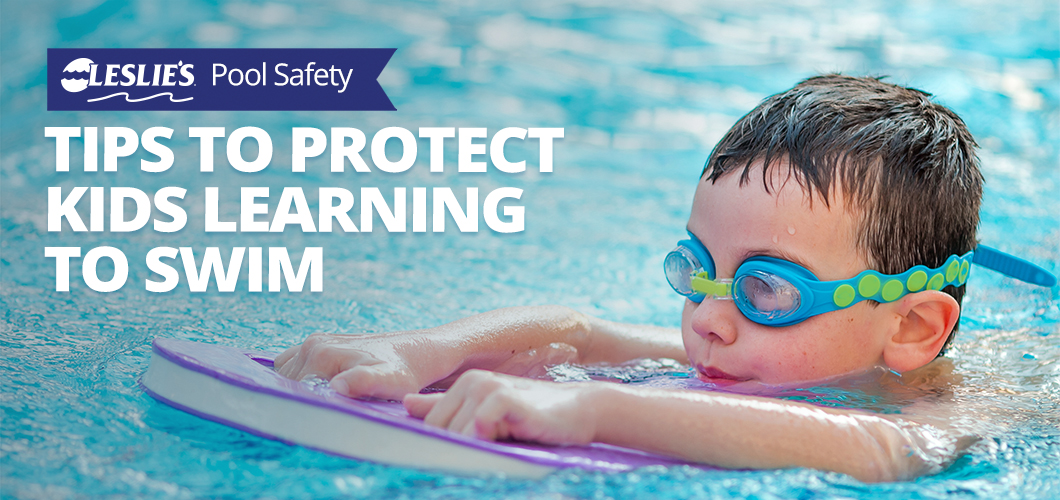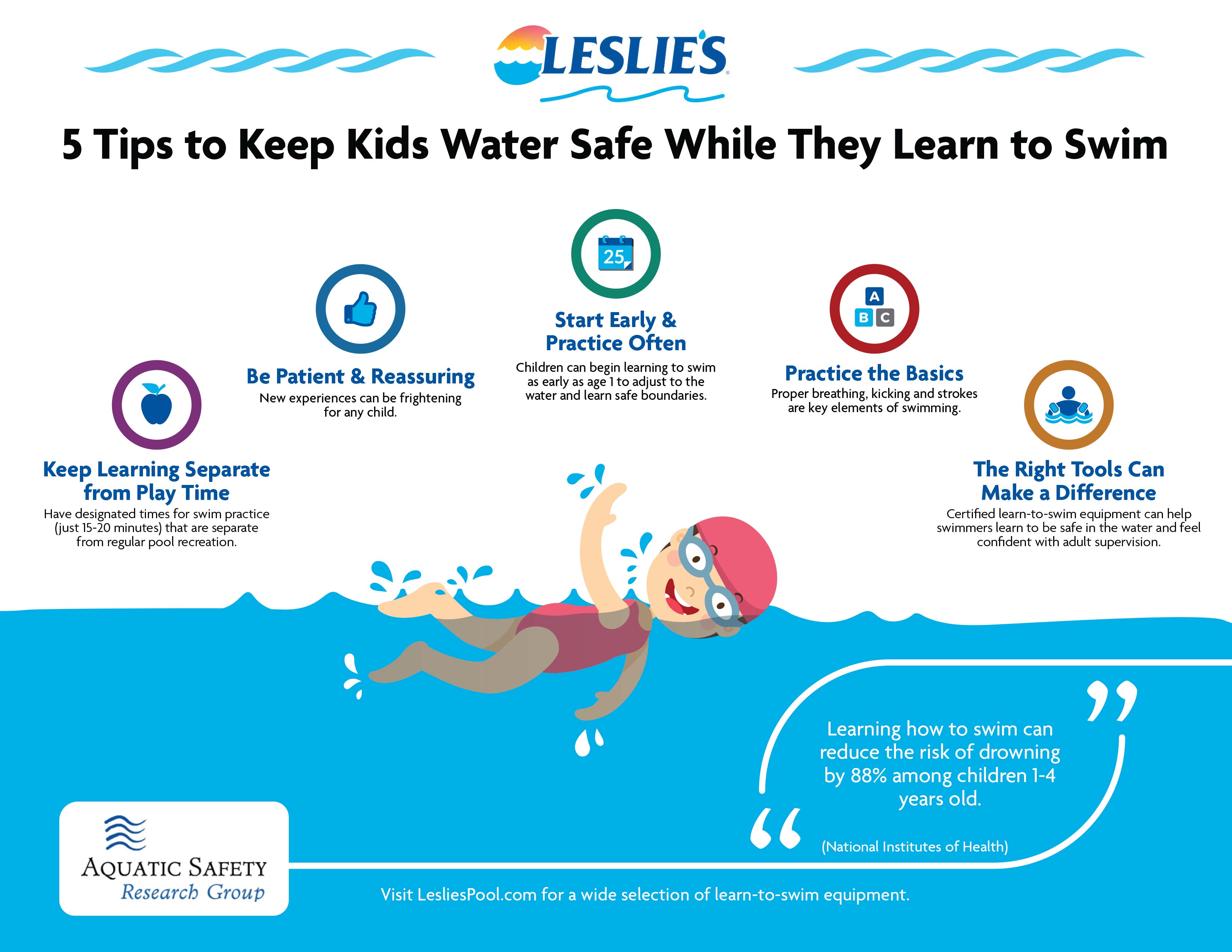
5 Tips to Protect Kids Learning to Swim
Leslie’s has teamed up with the Aquatic Safety Research Group to share important tips on how to keep kids safe while they learn to swim. The American Academy of Pediatrics recommends swimming lessons for all children starting at age 1, and it’s important to practice skills year-round.
At Leslie’s, we are committed to pool and water safety. Learning to swim should be a priority for every family. It's an important life skill that can play a key role in helping to prevent drowning ― a top cause of death among children and adults.”
Tracy Dick, Leslie's Senior Vice President of Marketing
5 Water Safety Tips for Kids
The Aquatic Safety Research Group recommends the following water safety tips to help educate children on how to be safe swimmers:
1. Start early and practice often.
Children can begin learning to swim as early as age 1 to adjust to the water and learn safe boundaries. Learning how to swim can reduce the risk of drowning by 88% among children 1–4 years old, according to the National Institutes of Health. It’s important to keep active throughout their formative years. Formal swim lessons are highly recommended, no matter the age.
2. Be patient and reassuring.
New experiences can be frightening for any child. It’s normal for little ones to cry the first time they are in the water. Don’t force them, and always make sure they aren’t hungry or tired when it's time to practice. Positive experiences will help them develop a healthy relationship with the water, and will make future swimming sessions something they look forward to.
3. Keep learning separate from playtime.
Have designated times for swim practice apart from regular pool recreation. Fun activities can help reinforce new skills, but brief, dedicated swimming sessions promote faster learning in the pool. Make it fun and reinforce new skills during water play, but keeping practice to 15–20 minutes helps better engage kids with the skills they need to learn to be proficient swimmers.
4. Practice the basics.
Learning breath control and proper kicking and stroke techniques are all key elements of swimming, as is learning how to float. Practice them in shallow water, at the edge of the pool, or with specially approved learn-to-swim aids. The initial focus should always be on breathing well and becoming comfortable in the water.
5. The right tools can make a difference.
Certified learn-to-swim equipment and swim aids can help swimmers learn to be safe in the water and feel confident while learning to swim. But remember, swim aids are never a substitute for adult supervision and formal lessons.
In addition, make sure your pool area is secure to prevent unsupervised pool access. Young swimmers will be drawn to the pool even more as their skills grow and they become more comfortable with the water. Installing fences, pool alarms, and other safety tools can help keep the pool area as safe as possible.

Click the image above to download and print these tips for future reference.
“Our team and Leslie’s share a mission to make sure every child learns how to swim,” said Dr. Tom Griffiths, president and founder of the Aquatic Safety Research Group. “We hope these tips will help keep kids water-safe as they become strong, confident swimmers — a skill that may one day save their lives.”
If you have any other questions about ways to ensure a safe pool environment, call or stop by your local Leslie’s, or check out our online pool safety selection.